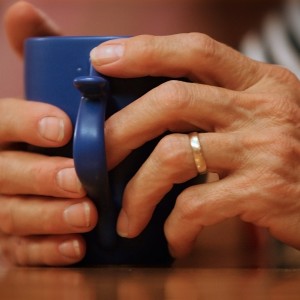BY SUSAN VON HEMERT | originally publised in the Daily Progress
As a social worker, I am trained to take a biopsychosocial-spiritual perspective when helping clients deal with life events. So when I work with people dealing with grief, I am keeping in mind their physical health, mental health, social health and spiritual health.
Grief is defined as the natural response to a loss. This loss may be the death of a loved one, loss of a valued relationship or even loss of a treasured object. This response can manifest itself in our physical health, mental health, social health and spiritual health. Very often, all of these qualities are affected by grief. In the older adult, this can be magnified.
As we are all unique as individuals, so is our grief. No two people grieve in the same way. There is no schedule of what to expect on the grieving journey. For example, many people believe that after a year, they should be finished with the grieving process. This may be true for some people, but certainly not for all.
Sadness and mourning are a natural part of grieving, but ongoing depression is not. Most people navigate this journey on their own, with friends and family there to support them along the way. When the grieving process turns into ongoing mental health issues, it is time to reach out for additional help. Local hospice organizations have bereavement counselors trained to help.
In the older adult, the grieving process becomes complicated because the losses are compounded. These losses can include death of a spouse death of friends; declining health; retirement or loss of a career; loss of independence, such as driving a car, paying bills and shopping; declining cognitive health/memory loss; death of a pet; change in family roles; loss of society’s norms of beauty and strength; and loss of family as a result of moves to other parts of the country or world.
One woman I know who lives in a retirement community recently remarked that she has to limit herself to one funeral a week. Facing death almost on a daily basis becomes part of life for many older adults.
This level of grief can manifest itself as physical decline or an exacerbation of current illnesses. Many older adults take multiple prescription medications, which also can complicate the grieving process. Compounded losses can affect the mental health of an older adult, causing increased anxiety and depression.
Because of the stigma attached to mental illness, older adults are less likely to seek help for psychological problems. Primary care physicians treating the elderly see a great deal of mental health issues in their practices. Socially, many older adults are already isolated and lonely. Adding multiple losses on top of existing isolation only makes this grieving process even more complicated. And spiritually, when an older adult faces the death of a loved one, it is often a time to reflect on their relationship with a higher power and with death itself.
When working with older adults who are dealing with complicated grief, I begin with basic education on the grieving process. Learning about grief normalizes the many feelings people are experiencing. It also allows you to see the difference between the “normal” grief process and other complications, such as depression and anxiety.
The second step in the helping process is learning different ways to express this grief. Letters to loved ones who have died, photo and written journals, and group sharing are all good examples of healthy ways to express grief.
Next, I help the older adult with building new relationships. This requires learning to incorporate the past into the present. For example, when an older adult loses a longtime spouse, they must find a way to continue the relationship, even though that person is no longer around. It is unrealistic to expect older adults to “move on” the way younger adults are expected to do.
And finally, I encourage the grieving older adult to put their energy into a new identity, such as grandparent or friend. This allows him or her to find a glimmer of hope for the future.
The grieving process is like a piece of sea glass you may find on the beach. It was once a very sharp piece of glass, but with time, it has become smooth and beautiful.
Older adults are resilient. Depression is not a normal part of the aging process. Grief brings opportunities to grow, which may turn into that beautiful bit of sea glass. When the grieving process feels out of control, whether you are young or old, it is important to reach out for help. If you are caring for an older adult and feel that he or she is suffering from complicated grief, assist him or her with reaching out for help. Local hospice and senior centers are a good place to start.
Susan von Hemert is a geriatric social worker. She can be reached at svonhemert@gmail.com or (434) 953-4851.






No comments yet.